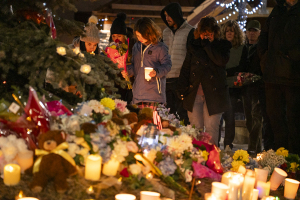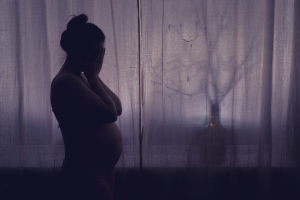Relationships matter: Building stability in an unstable world

Some age groups and even cultures romanticize change, while others seem to thwart it. But whether we dream of studying abroad or resist moving across town to a new neighborhood — of this we can be certain: change is inevitable.
In my own country, as we enjoy spring and gear up for warmer months, nearly 40 million Americans will pack their belongings and move during this upcoming summer season. In fact, the typical American will relocate nearly 12 times in his or her lifetime, as well as change jobs about 12 times. And even if we stay in the same town our entire lives, support structures often shift as our parents age, careers end, children grow up, and spouses eventually pass away.
For this reason, due to the evolving patterns of our lives, having a solid support system in place is vital for living a sustainable and healthy life. In my 61 years of life, I’ve discovered that capitalizing on stable times for relationship building has proven key to forging a bit of certainty in a very unstable world.
Young Life, the youth-focused, Christian nonprofit with whom I serve, recently conducted a survey of more than 7,000 adolescents from around the world, ages 13 to 24. Called The RELATE Project, the survey confirmed what many of us have suspected: while most teenagers and young adults struggle to fit in during high school, they need the most support from a trusted adult during times of transition — especially between the ages of 16 and 19. A season of inherent instability, this age range spans an important time when most teenagers are learning to drive, gaining independence, facing decisions about the future, moving away from home, or pursuing a new job.
Yet, as I’ve worked with teenagers and young adults the last several years, I’ve gleaned one important truth which I think is universal, regardless of age or life stage. Having even one relationship consisting of trust and stability with another person is a game changer.
I’ve certainly observed this in my own life. When I was young and throughout my teen years, my grandfather intentionally invested in me. His love was unconditional, evident and tangible. He often called me “little buddy,” and his investment in me was one of my first glimpses into the pervading importance of being seen by others, deeply known and dearly loved, flaws and all.
The survey also revealed that for young people, it’s not the quantity of relationships that matter, but the quality. We learned that “young adults with fewer but deeper relationships” felt more secure than those with many superficial relationships. I think this truth applies to us all — from young kids to senior adults. Each of us longs to be authentically known by at least one other individual, but that takes intentionality, vulnerability and investment.
Many years ago, I was given a somber cancer diagnosis. The prognosis ended up being good — the cancer turned out to be treatable — but for a few weeks I lived under a cloud, thinking I only had a short time to live. Fortunately, my wife and I had built decades-long relationships with several other couples through a church community group. Along with our family, this group, which we had intentionally tended over time, buoyed me as I contemplated my own mortality. These friends continue to be a valuable source of encouragement and support to this day.
Lastly, it seems we flourish best — whether in seasons of change or stability — when three things are evident: we enjoy close relationships, feel a sense of belonging, and have a positive view of ourselves, believing we are worthy of being loved. I’d even suggest that having close relationships actually helps provide us with that sense of belonging and positive self-worth, and it’s never too late to start building those.
We know with certainty that we live in an uncertain world. We also know that more of us than ever are feeling alone. If you look around, many people in your workplace, at the grocery store and the gym, and maybe even in your own home are experiencing a loss of deep relationships.
The antidote to this? Create a sense of belonging right where you are. Look for opportunities to relate to others, such as connecting with a neighborhood book club, playing on the company softball team, volunteering at a nearby charity, or joining a local church. Close relationships often occur when we’re doing something we care about with others who are similarly invested. Some people best connect when they’re shoulder to shoulder, rather than face to face. It’s never too early or too late to seek out opportunities for relationship building.
Investing in the people around us during times of stability can make the difference between flourishing or floundering when circumstances shift. From the teenagers under our roof to the ties with our coworkers, how can we better show up for the people in our lives and create new ways for our relationships to flourish and grow?
From 9 to 99, the age-old proverb sums it up best: to have a good friend, you simply must be one.
Newt Crenshaw is the president and CEO of Young Life.



























